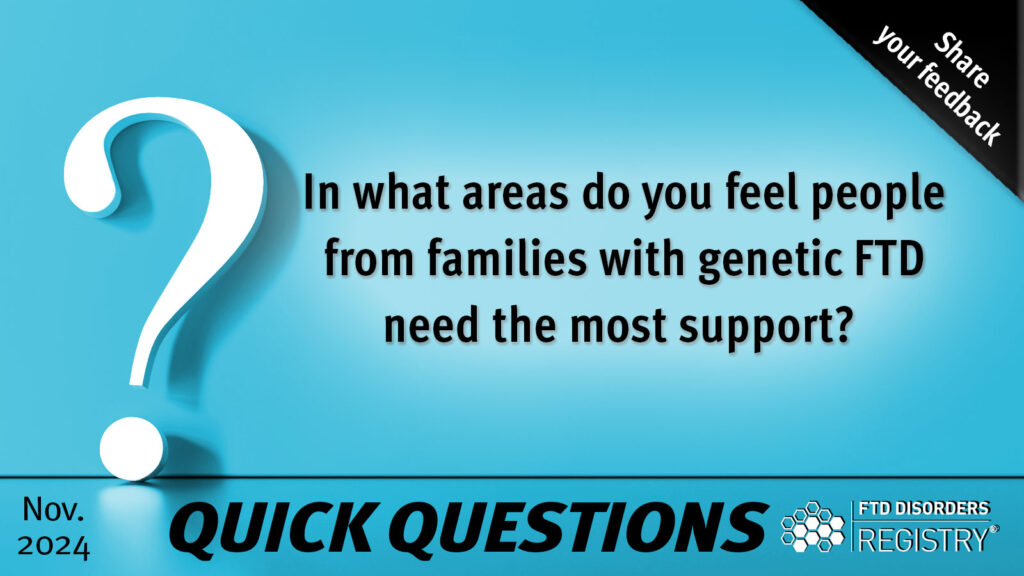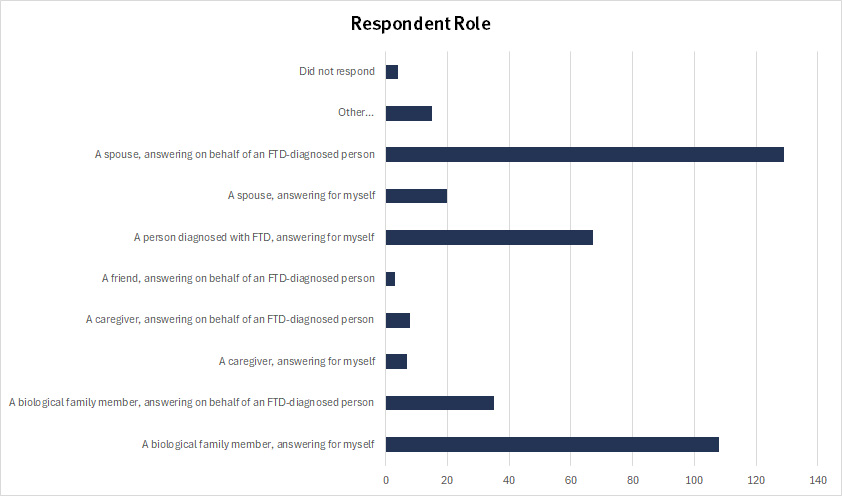PRESS & NEWS
Quick Question November 2024 Result: In what areas do you feel people from families with genetic FTD need the most support?

The FTD Disorders Registry’s November Quick Question received 396 responses about the type of support families with genetic FTD need.
The FTD Disorders Registry’s November Quick Question received 396 responses about the type of support families with genetic FTD need.
We asked respondents to select up to three areas. The top three responses were:
- support for asymptomatic people with positive genetic test results
- support for asymptomatic people considering genetic testing
- support for partner of asymptomatic people with confirmed genetic risk
Many people also wrote in their own areas of focus which included support for children of both symptomatic and asymptomatic parents, support for siblings, and support for spouses and caregivers of symptomatic individuals.
Additional insights from this Quick Question will be shared in a future publication.
Demographics
Of the 396 respondents, 270 were female and 122 were male. 4 chose to not identify their gender. We received responses from 44 states and 20 countries with one person who did not identify their country of residence.
The majority of respondents were spouses answering on behalf of an FTD-diagnosed person (32.5%) with the second largest group of respondents being biological family members answering for themselves (30.3%).

The majority of respondents reported that their loved one had passed on (37.8%) with the second largest group reporting that the person diagnosed was experiencing mid-stage or moderate cognitive decline (28%).

Results from this Quick Question will be shared with our partners at the Association for Frontotemporal Degeneration (AFTD) to help guide their support programs.
Together we can find a cure for ftd
The FTD Disorders Registry is a powerful tool in the movement to create therapies and find a cure. Together we can help change the course of the disease and put an end to FTD.
Your privacy is important! We promise to protect it. We will not share your contact information.



